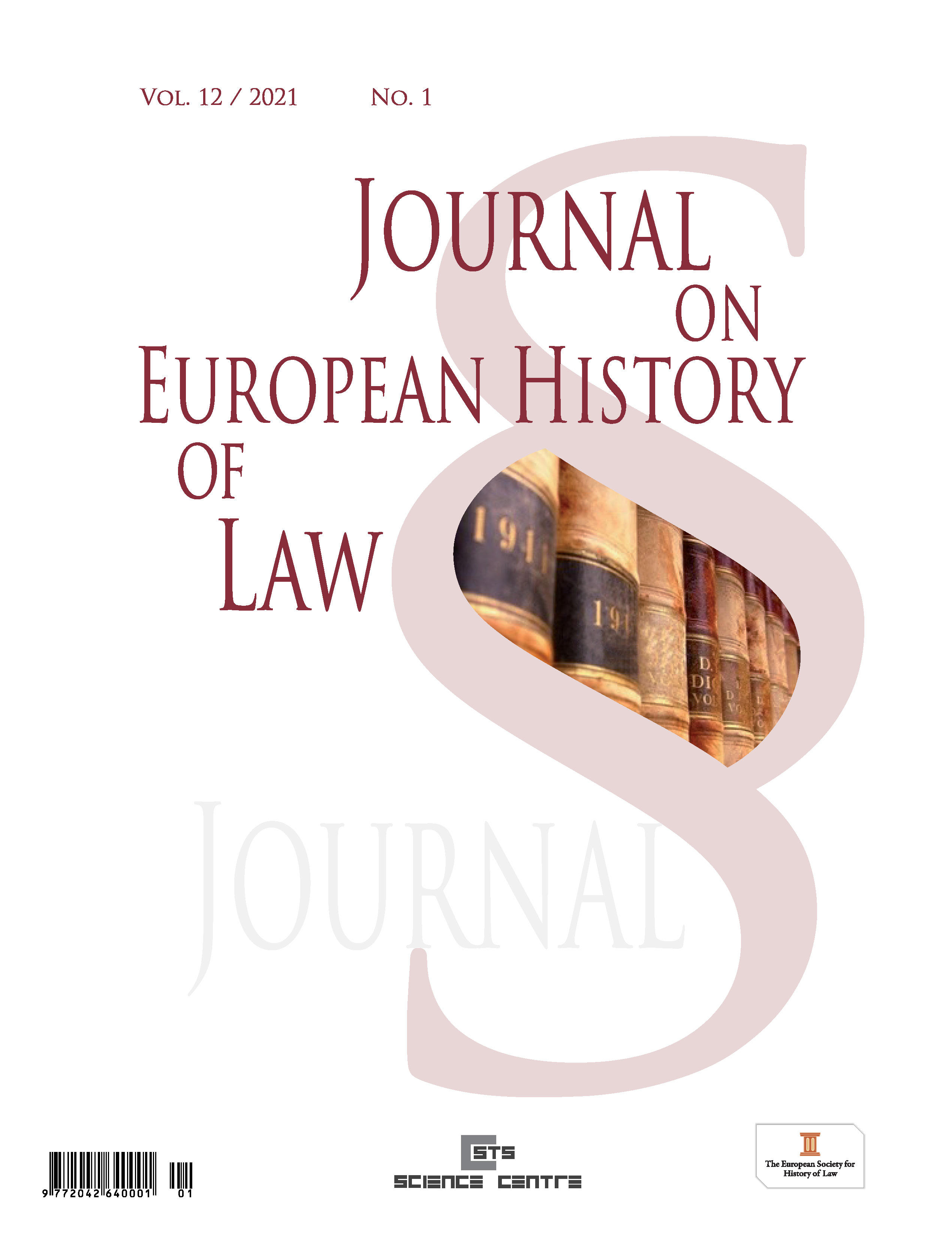The Impact of the Germanic and Romanesque Model of Combating Unfair Competition on the Legislation in Inter-War Poland (1918–1939)
The Impact of the Germanic and Romanesque Model of Combating Unfair Competition on the Legislation in Inter-War Poland (1918–1939)
Author(s): Tomasz DolataSubject(s): History, Law, Constitution, Jurisprudence
Published by: Evropská společnost pro právní dějiny, z.s.
Keywords: Tomasz Dolata: The Impact of the Germanic and Romanesque Model of Combating Unfair Competition on the Legislation in Inter-War Poland (1918–1939) The first country that decided to regulate the issu
Summary/Abstract: The first country that decided to regulate the issues of combating unfair competition in a specific statute dedicated to this phenomena (1896) was Germany. The so-called criminal method of regulations was used. Other legislations, including but not limited to, Austrian, Czechoslovakian, Norwegian or Yugoslavian followed the German model. A completely different system was introduced and developed by the French lawyers who relied on the civil concept of combating this phenomenon. A characteristic feature of the French solutions was the lack of a specific statute devoted to the repression of this phenomenon. In addition, by way of skilful application of the provisions of the Napoleon Code the French case law and doctrine have construed a very comprehensive model for combating unfair competition. This model was based on the subjective right, which was the right to clientele. All actions violating the subjective right sanctioned by the Act were unlawful and constituted the basis for initiating a civil complaint, i.e. for instigating claims against the infringer. The French model constitute inspiration for, among others, Belgian, Italian, Spanish and Bulgarian legislation. The first Polish Act on Combating Unfair Competition of 1926 combining both the French and German model of combating this phenomenon seems interesting. However, an attempt to simply assign the Polish statute to the French or German model must prove unsuccessful because the Polish legislator, while devising the Polish law, reached for legal measures characteristic for both the French and German structures of repression of this phenomenon. This is the civil method of combating unfair competition based on the relevant subjective right–the ownership right in an enterprise as an intangible asset which is common to the Polish and French model, while the German model has been brought closer to the Polish law due to the concept of regulating this phenomenon by means of a specific statute, casuistic list of unfair competition activities supported by the use of general clauses, a separated criminal-law part in the Act containing a similar catalogue of offenses set out in the Act.
Journal: Journal on European History of Law
- Issue Year: 12/2021
- Issue No: 1
- Page Range: 47-55
- Page Count: 9
- Language: English

